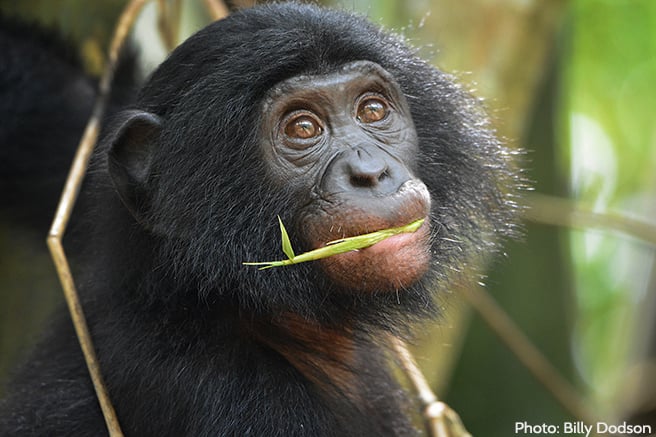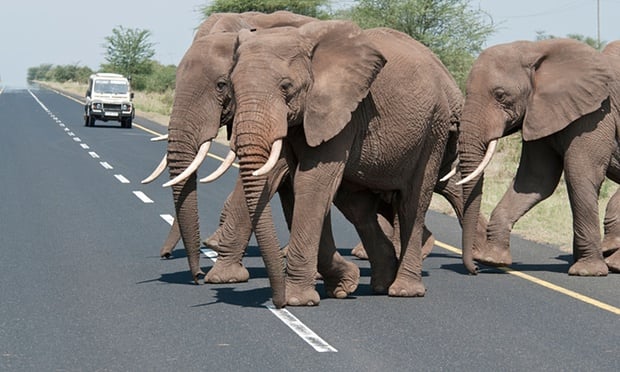Cote D’Ivoire’s soccer star, Yaya Toure has thrown his full support to a new campaign to end illegal wildlife trade.
Speaking on the occasion of the launch of the campaign against the illegal trade in wildlife in Nairobi, Kenya, the English Premiere League star said “Today, I am giving my name to change the game for elephants. Give yours too and join my team. This is a challenge we can’t afford to lose.”
“On the pitch, I see how important it is to stand shoulder-to-shoulder with my teammates to take on the challenge and secure victory. The team we need to form to beat the illegal trade in wildlife is not just eleven – it is seven billion. And I hope to use my sphere of influence to ignite this movement. 3,000 great apes are lost from the wild every year; over 70% of all great ape seizures are orangutans”
Yaya Toure joined what the United Nations Environment Program (UNEP) described as an A-list celebrities from across the globe to launch the campaign.
Each year, thousands of wild animals are illegally killed, often by organized criminal networks motivated by profit and greed,” said Secretary-General Ban Ki-moon. “I call on all Governments and people everywhere to support the new United Nations campaign, Wild for Life, which aims to mobilize the world to end this destructive trade. Preserving wildlife is crucial for the well-being of people and planet alike.”
#WildforLife, launched at the second United Nations Environment Assembly (UNEA-2) in Nairobi in front of environment ministers from every corner of the planet, aims to mobilize millions of people to make commitments and take action to end the illegal trade.
Also read: Illegal Trade in Wildlife Fact Sheet
The campaign is run by the United Nations Environment Programme (UNEP), the UN Development Programme (UNDP), the UN Office on Drugs and Crime (UNODC) and the Convention on International Trade in Endangered Species of Wild Fauna and Flora (CITES). The Global Environment Facility (GEF) and World Bank are also on board as supporters.
UNEP Goodwill Ambassadors are lending their weight to the cause. These include Brazilian model Gisele Bündchen, who is fighting for sea turtles; four-time African Footballer of the Year Yaya Touré (Manchester City, Ivory Coast), who is backing elephants; and actor Ian Somerhalder (Vampire Diaries, Lost), who is rooting for pangolins.
They are being joined by major celebrities from China, India, Indonesia, Lebanon and Viet Nam battling to conserve species such as orangutans, tigers, rhinos and helmeted hornbills and calling for citizen support to end the demand that is driving the illegal trade.
“It saddens me that in the 21st century, with all our knowledge and power, we are still hearing stories of wildlife facing the possibility of extinction at the hands of man,” said Gisele Bündchen. “It is clear to me that a radical global shift needs to occur and it will take everyone accepting the challenge to support the UNEP Wild for Life campaign.

3,000 great apes are lost from the wild every year; over 70% of all great ape seizures are orangutans.
“Knowledge is power and now is the time to set our minds to ending all illegal wildlife trade before the choice is no longer in our hands. Today, I am giving my name to change the game for sea turtles.”
Between 2010 and 2012, 100,000 elephants were killed for their ivory in Africa. Three rhinos are killed every day, and the Western Black Rhino has already gone extinct. Pangolins – scaly anteaters – are the most illegally trafficked mammal in the world. Great apes are already locally extinct in several African nations.
The campaign asks participants to find their kindred species and use their own spheres of influence to end the illegal trade, however it touches or impacts them.
Profits from the illegal wildlife trade sometimes go into the pockets of international criminal networks, threatening peace and security, and damaging the livelihoods of local communities who depend on tourism.
Stopping this trade is also crucial to achieve the UN Sustainable Development Goals (SDGs), as it threatens countries’ biodiversity and people’s livelihoods, and disturbs peace. SDG 15 in particular calls for the protection of wild fauna and flora as well as the ecosystems that they depend on – including targets on combatting and addressing the supply and demand of illegal wildlife products.
Politicians, celebrities and business leaders will be making pledges during UNEA-2 and in the run-up to World Environment Day (WED), which is themed “Go Wild For Life” to tie in with the campaign. Angola, the global host of WED, will be making significant pledges to tackle the illegal ivory trade at the event.

